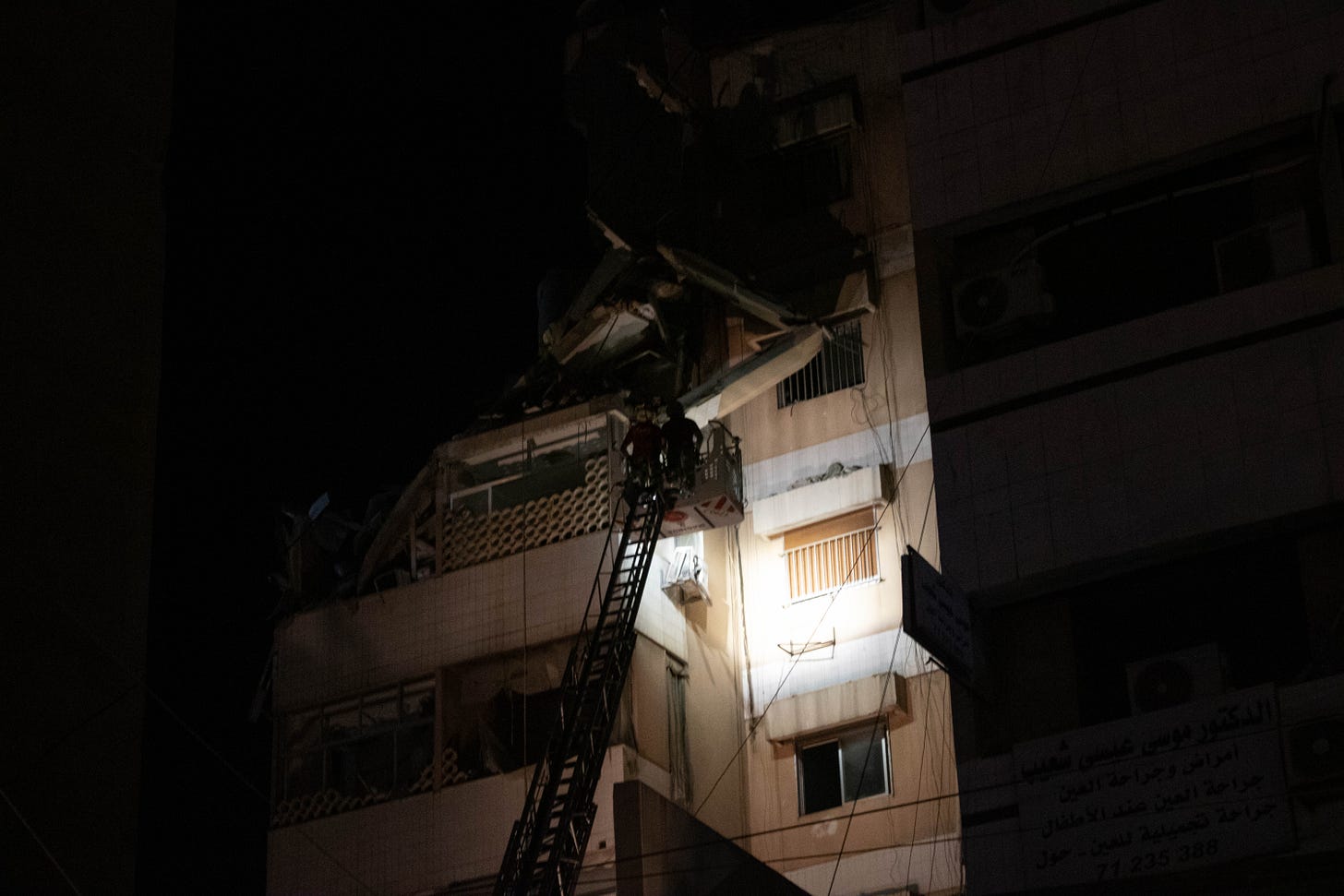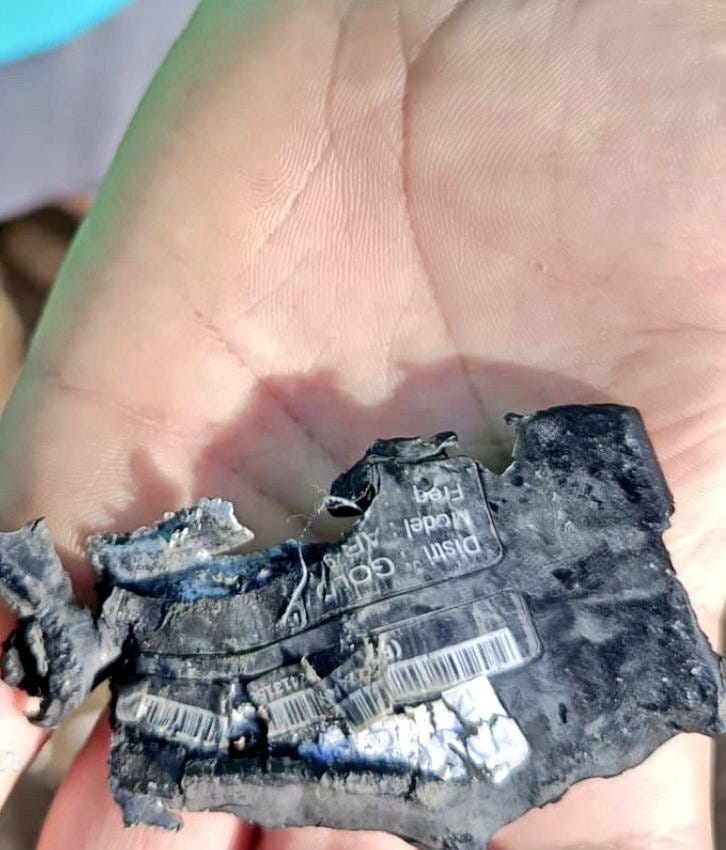The pager bombings
In an unprecedented attack, Israel detonated an unknown number of pagers used by Hezbollah members across Lebanon, once again raising fears that the possibility of war is that much closer.
At around 3:45 p.m. on Tuesday, Sept. 17, throughout parts of Beirut, south Lebanon and the Bekaa reports started to come in that small explosions were taking place.
It did not take long for it to become clearer that was exploding were pagers belonging to Hezbollah members. While the number of explosions is unknown, it is believed to be in the thousands.
Soon after the explosions, the sirens from ambulances began echoing through the streets as security forces from both the Lebanese state and Hezbollah started setting up roadblocks and directing traffic to allow the ambulances to more quickly retrieve and transport patients to the hospitals.
The sirens and roadblocks lasted for hours after the explosions occurred.
In total, an estimated 2,800 people were injured in the bombings with at least 12 killed, including two children and a woman.
No one took credit for the attack, but it did not take long for Hezbollah to point the finger at Israel – its enemy that it has been engaged in a war for nearly a year. Most analysts agree that no other country would have the means or the motive to carry out such an attack.
The United States quickly denied that it had any knowledge of the attack and did not take any part in it.
However, the question remained: How did Israel manage only to blow up thousands of pagers belonging to Hezbollah members?
How did this happen?
Much of what people have been able to put together is a skeleton of what they believe likely occurred.
Sources have told various outlets that Israel managed to penetrate Hezbollah’s secrative supply network as the group was importing between 3,000 to 5,000 new pagers.
Hezbollah uses pagers over other communications methods to make it harder for Israel to spy on its operatives since pagers do not have a cellular signal that can be intercepted or GPS data that can be tracked. For years, Hezbollah has boasted about its low-tech approach to operating and its ability to subvert Israel and intelligence agencies.
The pagers involved in the bombings were produced by the Taiwanese Gold Apollo company which denied manufacturing these specific pagers. According to the company, it was entirely handled by a Hungarian company called BAC Consulting KFT.
Once it intercepted the shipment of pagers, Israeli operatives planted a small amount of explosives inside the pagers that could be remotely detonated at a later date.
Yet why did Israel detonate the pagers now as it was not necessarily a strategic time – such as if a full-scale war broke out?
There have been three main competing theories that have presented themselves in the time since the bombings.
The first is that Hezbollah discovered that there was something wrong with the new pagers and was trying to get its members to get rid of them but Israel detonated them to at least get a small win out of the operation.
The second theory is that the Israeli leadership felt like they were under pressure since the pagers had been in use for several months and wanted to ensure that the operation was not for nothing if Hezbollah either discovered that the devices had been tampered with or they replaced them once more.
Lastly, this could also be part of Israel’s strategy to widen the war with Hezbollah in its latest goal to bring Israel’s northern residents back to their homes.
On top of this, Israeli Prime Minister Benjamin Netanyahu could be doing this to try and create a larger war so that he can remain in power and not have to answer for any of his possible failings in Hamas’ Oct. 7 attack – something that the prime minister has become increasingly accused of seeking to do – and appease the far-right members of his coalition who have threatened to topple the government if a cease-fire agreement is reached in Gaza.
No matter how it happened, it has been labeled as one of the biggest security breaches in Hezbollah’s and Lebanon’s history.
What happens next?
While Hezbollah said that it would respond to the bombings, this response is unlikely to come anytime soon.
After Israel assassinated the group’s military commander, Fouad Shukr, on July 30, it was not until nearly the end of August that the party finally launched its retaliatory attack of over 300 rockets and drones with the intended target being the Israeli army’s Unit 8200 headquarters in Glilot near Tel Aviv. According to Hezbollah and pro-Hezbollah media outlets, the site was hit, killing and injuring dozens. Israel has denied all of these claims.

Given the nature of this this attack, a Hezbollah response is going to take some time.
Firstly, the group needs to perform a deep internal investigation as to how Israel was able to infiltrate its supply chain as well as to ensure that there are no further deep penetrations by Israel within the organization.
This will be a protracted process but a necessary one nonetheless if Hezbollah is looking to ensure that future attacks are successful and that attacks like the pager bombings do not occur again.
Whenever the party finishes its investigation, the planning for the retaliation begins.
Hezbollah’s response is expected to be bigger than its last and to carry a much bigger punch. What that will look like is unclear.
The main concern for many people, though, is whether this will lead to a full-scale war.
There is a general agreement that no one wants this war to happen given that it would be incredibly destructive for both Lebanon and Israel and that it runs the high possibility of leading to a larger regional war.
However, this Israeli attack could be viewed by Hezbollah as one step too far and the group has no other choice but to launch a full-scale war with Israel.
There is also the possibility that Hezbollah’s response could be used as a justification for Israel to launch an invasion of south Lebanon to try and push Hezbollah away from the border.
Recently, the U.S. has been trying to prevent further escalation between Hezbollah and Israel. Just the day before the attack, U.S. envoy Amos Hochstein was in Israel to speak with Israeli leaders to push for de-escalation.
Given that Israel carried out the attack the following day, it is unclear how much effect American diplomacy is having on its regional ally.
Hezbollah leader Hassan Nasrallah is set to speak on the evening of Sept. 19 to discuss the recent developments, but, short of declaring an open war with Israel, his speech is not expected to provide a significant amount of clarity for what to expect going forward.
For the time being, all people can do is wait and see what happens while the specter of war looms ominously overhead.





